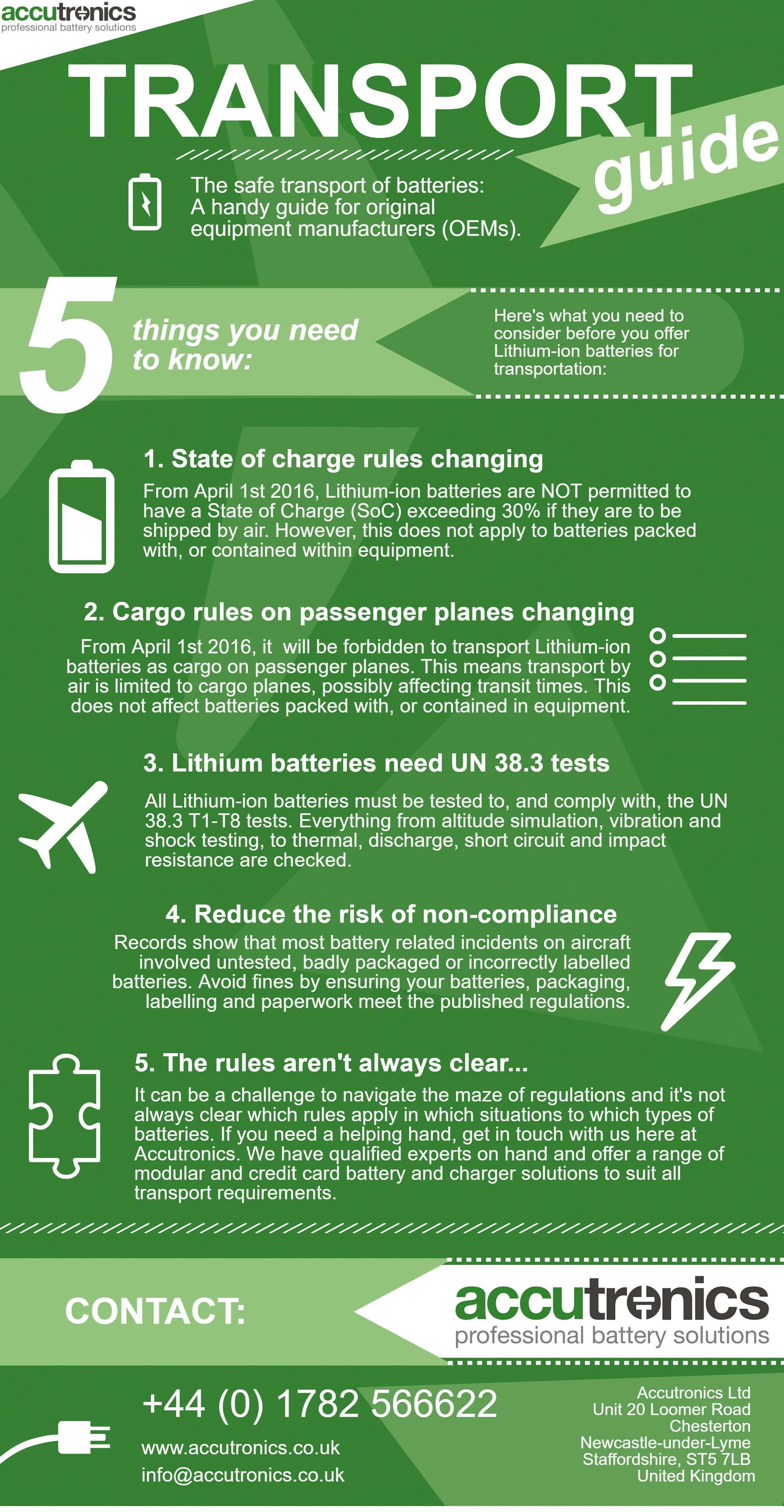Accutronics has released a one-page guide about the safe transportation of lithium-ion batteries. Targeted at original equipment manufacturers (OEMs) in the medical, defence and instrumentation sectors, the guide offers five quick steps to ensuring that batteries meet international standards of design, assembly and testing before being packed for shipment.
As well as new changes coming into force from 1 April in relation to the State of Charge (SoC) of batteries transported by plane, the guide also highlights IEC standards, UN testing regulations and special provisions required before batteries can be shipped by plane.
The rise in demand for smaller, more portable devices that require a lot of battery power has resulted in more compact and energy-dense batteries. Customers in industries including medical, healthcare, security, defence and instrumentation are increasingly using feature-laden devices with power hungry features including colour touchscreens, GPS antennas and Wi-Fi radios, more powerful processors and onboard storage.
It can be a challenge to navigate the maze of regulations, for example, batteries in medical applications must meet the requirements of IEC safety testing in addition to the mandatory transportation testing. With the high volume of batteries now being shipped by plane globally, it is important that businesses offering batteries for transport are aware of their responsibilities.
This one-page visual guide can provide OEMs with a starting point on the journey to safely transporting lithium-ion batteries by plane:

Download a pdf version of this guide
Key points to remember:
- Battery state of charge changes to 30% from 1st April
- Cargo rules for Lithium Ion batteries change on 1st April
- Lithium Ion batteries must be tested to UN 38.3
- Ensure your batteries have proper packaging, labelling and paperwork
- Speak to a qualified expert
If you still need a helping hand, Accutronics has transport-qualified experts
who can help and our customisable range of pre-engineered battery and charger solutions
are available to meet transportation requirements


